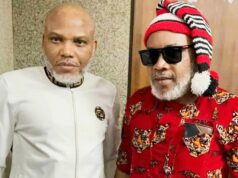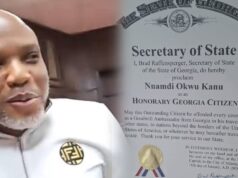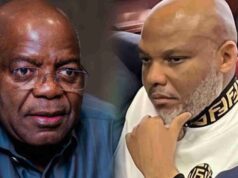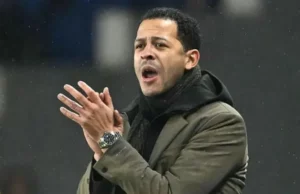The legal team of the Indigenous People of Biafra, IPOB, on Tuesday said IPOB leader, Nnamdi Kanu, was suffered by extraordinarily renditioned to Nigeria, therefore that no court in Nigeria, has the jurisdiction to proceed on the matter.
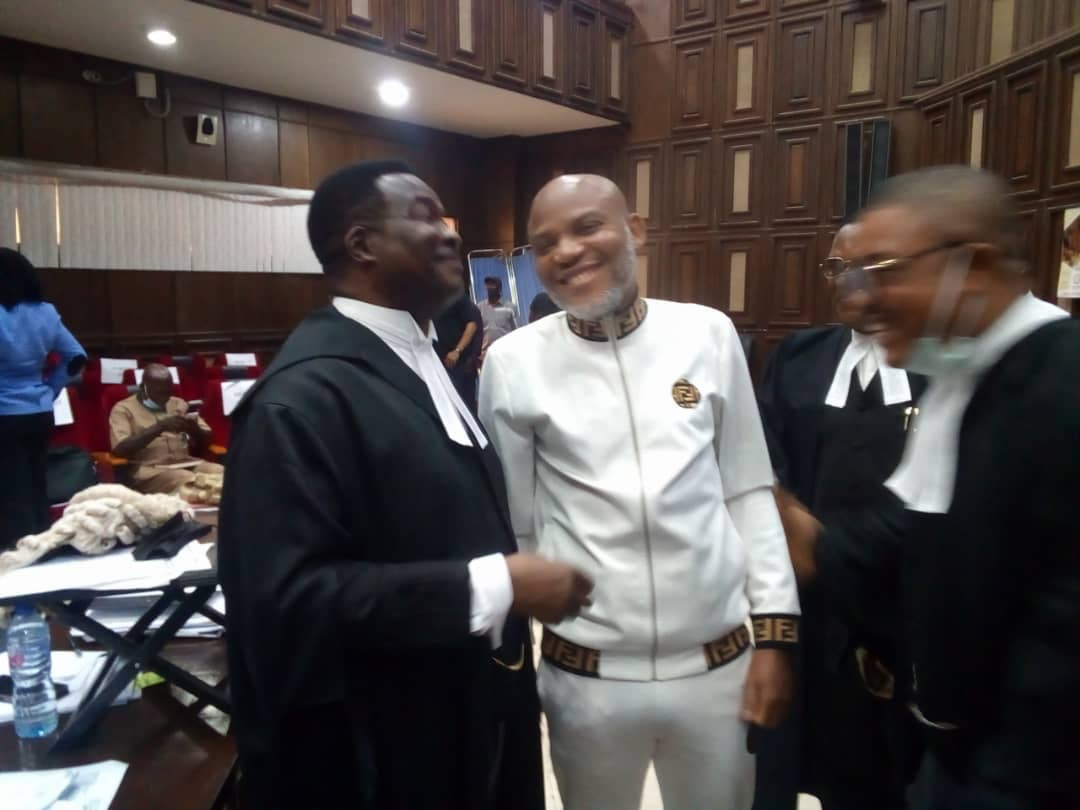
The IPOB lead counsel, Ifeanyi Ejiofor, made this known to newsmen in Owerri, after they visited Kanu, at the Department of State Service, DSS, facility in Abuja, last Sunday.
He argued that the extraordinary rendition violated subsisting Nigerian laws.
Ejiofor narrated that; “Our exclusive interaction offered us the unique opportunity to brainstorm on strategic legal dynamics on all pending IPOB cases, with particular regard to the envisaged possible outcome of the 8th April 2022 scheduled proceedings.
“Needless to reiterate the fact that no Court in Nigeria has the jurisdiction to proceed with the trial of Onyendu, who was extraordinarily renditioned to Nigeria. This is a grave infraction, which is in clear violation of Nigerian Law, specifically Article 12 (4) of the ACHPR (Ratification and Enforcement) Act, Cap A9 Laws of the Federation of Nigeria 2004. We need not reopen our argument here.
“Onyewu was extensively briefed on pertinent developments, and his words of encouragement and reaffirmation of trust/confidence in our legal team are all we need to keep up with the legal fireworks.
“Onyewu was further assured that no stone will be left unturned in ensuring that justice is done in his case because he has committed no offence known to law. His present incarceration represents a punishment for an offence he never committed, this would explain the amendment of the Charge six consecutive times in search of phantom/non-existent offences.”
“Onyendu commended his followers, especially those who have remained unshaken and undistracted in their undiluted loyalty to him and those steering the ship on his behalf. Onyendu remains firm in spirit and strong in conviction, even as he implores UmuChineke to continue to abide by best practices. He also specially commended you all for your peaceful conduct,” he concluded.

